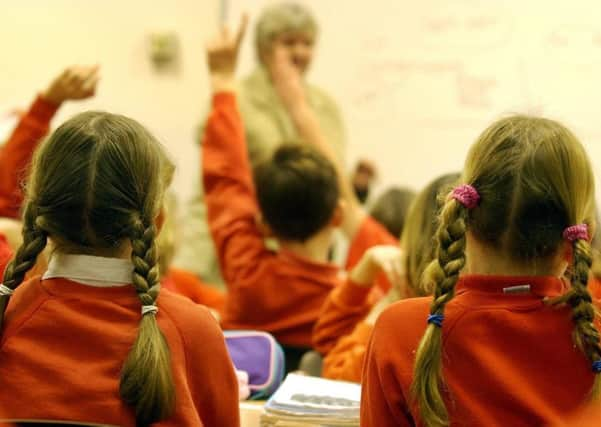Seven-year-olds on free school meals falling behind in South Tyneside


Results of the Key Stage 1 assessments, made when children are seven, show that the proportion reaching the required standard in reading, writing, maths and science falls below other children.
The Department for Education identify children from disadvantaged backgrounds as those who would be eligible for free school meals.
Advertisement
Hide AdAdvertisement
Hide AdThese children are lagging behind in all the assessed topics. The biggest gap is in writing with 55% reaching the required standard compared to 77% of other children. In reading it’s 63% compared to 82%. Fewer children receiving free school meals met the standard in maths and science too.
A spokesman for South Tyneside Council said: “It is a sad fact that nationally children on free school meals tend to perform less well than other children.
“The true picture in South Tyneside is that the achievements of all pupils across South Tyneside continue to show improvement which is testament to the hard work of our children and their families and school staff who support them.
This is reinforced by the latest data published by the Department for Education which shows that all pupils in South Tyneside are performing betterhan national averages, demonstrating that we are continuing to improve outcomes for all children.”
Advertisement
Hide AdAdvertisement
Hide AdHe added: “However, we are not complacent and remain committed to giving every child and young person the best start in life, regardless of their background, so that every child reaches their full potential.”
Nansi Ellis, assistant general secretary of National Education Union (NEU), which represents teachers, said; “There were 4.1 million children living in poverty in the UK in 2016-17, according to Child Poverty Action Group – one in four of the school population.
“Any serious strategy for raising educational attainment has to address these appalling figures.
Assessments were made of 1,695 pupils in state-funded schools across South Tyneside.
Advertisement
Hide AdAdvertisement
Hide AdThe proportion reaching the standard in reading was above the average for England, and matched the regional average.
Girls performed more strongly than boys and the gap was widest in writing where girls were 15 percentage points ahead.
In reading, 81% of girls achieved the target standard, compared to 74% of boys, and 32% of girls were judged to be working at above the required level.
The Key Stage 1 assessments were introduced in 2016 to determine how children were coping with the more challenging national curriculum set by the Government and the increase in the standards expected.
Advertisement
Hide AdAdvertisement
Hide AdSchool Standards Minister Nick Gibb said: “Reading and writing are the foundation of education and once grasped can open up a world of literature and knowledge to young people
“We remain determined to make sure that not just most children, but every single child is able to meet his or her potential.”